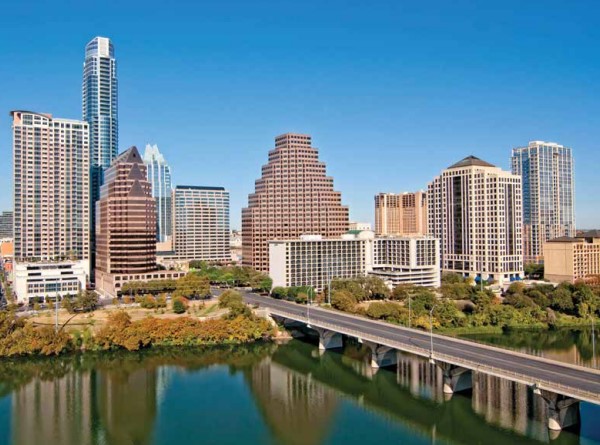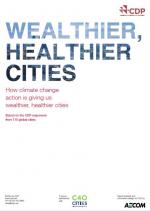
Submitted by admin on December 20, 2017

While national governments struggle to establish an agreed global climate deal, many of the world’s largest cities have been taking action to combat the effects of a changing climate. As a result, these cities are cutting their carbon footprint, reporting annual energy savings of up to US$11 million, and their residents are benefitting from healthier living and better business environments. These and other findings are published at 20.06.2013 in a new report from CDP.
Wealthier, healthier cities, uses analysis by AECOM (Architecture, Engineering, Consulting, Operations and Maintenance), and is presented together with CDP’s long-standing partner, C40 Cities Climate Leadership Group (C40). AECOM is a global provider of professional technical and management support services to a broad range of markets, including transportation, facilities, environmental, energy, water and government. The report is based on the carbon and water strategies disclosed through CDP’s cities program by 110 urban areas spanning every inhabited continent. It shows that savings from improved energy efficiency dominate the advantages that cities are capitalizing on as they respond to climate change and related impacts such as rising energy costs, with nine cities reporting collective savings of US$40 million.
Further, the initiatives that cities are taking to reduce emissions across their cities are likely to boost the economy, with 62% of these actions having the potential to attract new business investment. Sao Paulo, Brazil’s most populous city, has already seen the emergence of new industries related to clean technology, including electric and ethanol powered vehicles. Greater Manchester, one of the UK’s largest urban areas, has seen its low-carbon and environmental goods sector grow 4%, despite the ongoing recession in the UK. Furthermore, 55% of the cities are undertaking emissions reduction actions that promote walking and cycling, directly and indirectly improving public health.
CDP is an NGO providing cities, companies and investors with the only global environmental disclosure system, driving corporate and government action to transition to sustainable economies. Conor Riffle, head of CDP’s cities program says: “These leading cities are enjoying multiple paybacks for their economies and communities. National governments should pay close attention.”
“Climate change is the biggest threat to the future development of human civilization and poses a huge challenge for cities like London,” says Mayor of London, Boris Johnson, whose office helped to launch the report today in London, “But as London and the other cities taking part in CDP’s program know, fighting climate change by making significant CO2 reductions can result in billions of pounds of energy savings as well as healthier living and working environments — a clear win-win.”
Nearly every city in the C40 network of global cities taking action on climate change has participated in the CDP program this year, with many of them leading the way in reporting to CDP for a third consecutive year. Individual responses from the cities are now available on the CDP website, where the full report can be freely downloaded.





